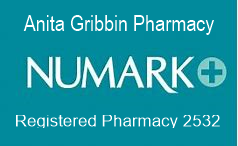Impetigo
Impetigo is a common and contagious skin infection, which most often affects the face, arms and legs.
It’s caused by strains of staph or strep bacteria, which can get into your body any time that there’s a break in your skin, such as a cut, scratch, insect bite, or rash. Once the bacteria find a break, they ‘invade’ your body, creating open sores.
Unfortunately, the open sores are highly contagious, and scratching the sores can spread the infection from one place on your skin to another, or to another person.
Anyone can get impetigo, but it most commonly affects children, especially those aged between 2 and 5. That’s why it’s often referred to as the ‘school disease’, primarily because it can quickly spread from child to child in a classroom where children are in close contact.
It’s not totally confined to schools, however. Impetigo can be contagious and you can catch the bacteria if you touch the sores of a person with impetigo, or if you touch items like towels, clothes or sheets that the person affected has used. As such, impetigo can also spread equally quickly in families.
The infection tends to be seasonal, peaking in the summer and in warm and humid climates. That’s because the bacteria that cause impetigo thrive in warm, moist conditions.
It’s called primary impetigo when it infects healthy skin and secondary impetigo when it occurs in broken skin, although it isn’t always easy - or necessary - to make this distinction.
Symptoms
The first signs of impetigo are usually reddish sores on the skin, which are often clustered around the nose and lips. These sores quickly grow into blisters, ooze and burst.
A yellowish crust then forms.
The sores can be itchy and occasionally painful and after the crust phase, they form red marks that fade without leaving scars.
Impetigo can be uncomfortable but, occasionally, it can cause swollen glands in the area of the outbreak.
Treatment
At Toome Pharmacy, our pharmacists are specially trained to both consult with you with regard to your or your child’s impetigo and, where appropriate, to prescribe the necessary medication.
The treatment that we prescribe for most of our patients with impetigo is Fusidic Acid Cream, which works by stopping the growth of the germs, which are causing the infection. Fusidic Acid Cream usually clears skin infection quickly, particularly where the infection only covers a small area.
With this cream, your skin should start to improve after a few days of treatment.
Advice and support
During your consultation with our pharmacist, you’ll be given information about controlling the spread of impetigo. Hygiene is the key to controlling the spread of impetigo, so our pharmacist will advise about washing and disinfecting everything that you have come into contact with, including clothes, bedding, towels, toys, and sports equipment.
If you suspect that you may have symptoms of impetigo such as those below call into the pharmacy or call us and book a consultation today.



